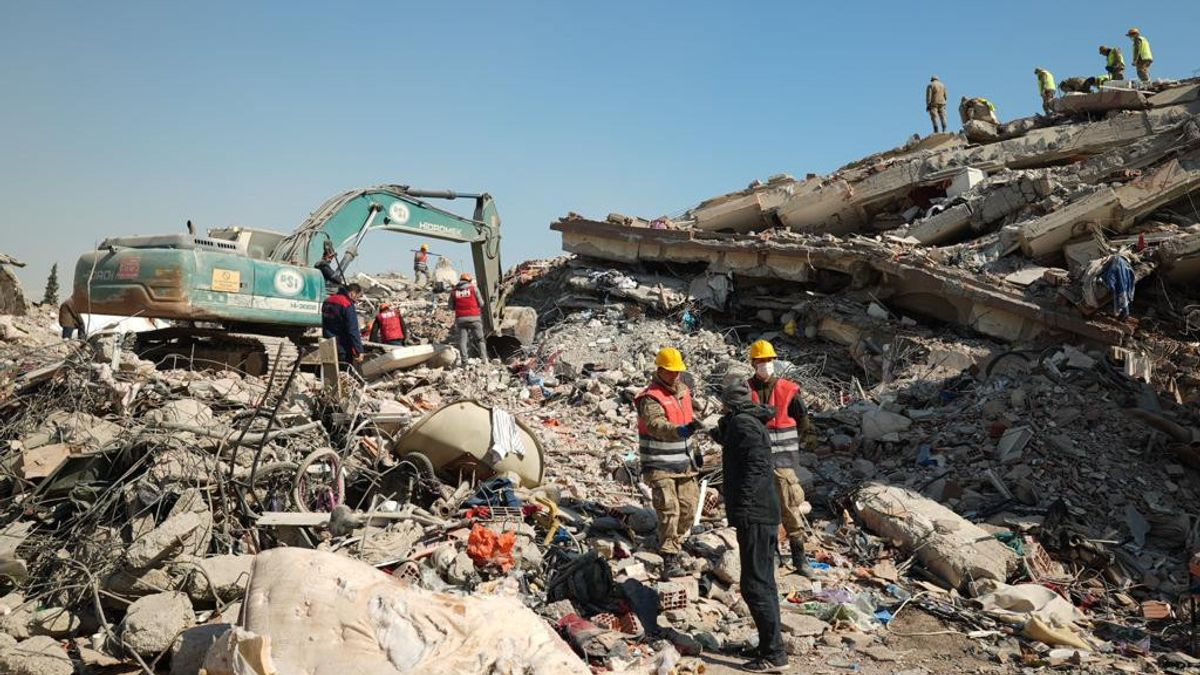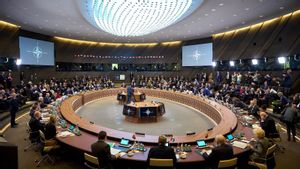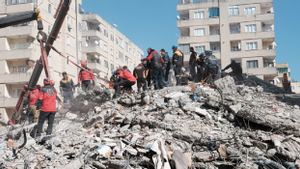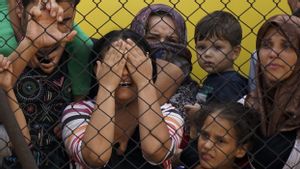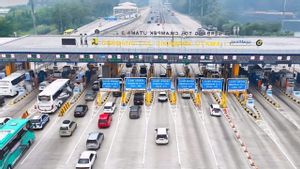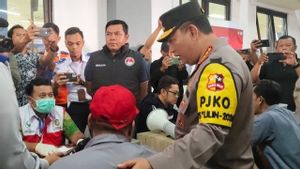JAKARTA - Nine people were rescued from the rubble of buildings in Turkey on Tuesday, more than a week after a major earthquake hit, while the focus of relief efforts shifted to helping people now struggling without adequate shelter or food, in the harsh weather. cold.
The disaster, with the combined death toll in Turkey and neighboring Syria exceeding 41,000, has damaged cities in both countries, leaving many survivors homeless in near-freezing winter temperatures.
Turkish President Recep Tayyip Erdogan has acknowledged problems in the initial response to the 7.8 magnitude quake that hit on February 6, but said the situation is now under control.
"We are facing one of the biggest natural disasters not only in our country but also in the history of humanity," President Erdogan said in a televised address in Ankara.
The death toll from the earthquake in Turkey reached 35,3418, said President Erdogan. Meanwhile, more than 5,814 people have died in Syria, according to a Reuters tally of reports by Syrian state media and UN agencies.
Those rescued on Tuesday included two brothers, aged 17 and 21, pulled from an apartment block in Kahramanmaras province. Then a young Syrian man and woman in Antakya were rescued after more than 200 hours in the rubble. There may still be people alive to find, one rescuer said.
But UN authorities say the rescue phase will soon be over, with the focus turning to shelter, food and schools.
"People are suffering a lot. We applied to receive tents, aid or something like that, but until now we have received nothing," said Hassan Saimoua, a refugee who lives with his family in a playground in the southeastern Turkish city of Gaziantep.
VOIR éGALEMENT:
Saimoua and other Syrians who took refuge from the war in their country and chose to settle in Gaziantep, were left homeless by the earthquake and forced to use plastic sheets, blankets and cardboard to set up makeshift tents in a playground.
"The need is enormous, increasing every hour," said Hans Henri P. Kluge, World Health Organization (WHO) director for Europe.
"About 26 million people in the two countries need humanitarian assistance," he continued,
"There is also growing concern over emerging health problems related to cold weather, hygiene and sanitation, and the spread of communicable diseases - with vulnerable people especially at risk," he said.
The English, Chinese, Japanese, Arabic, and French versions are automatically generated by the AI. So there may still be inaccuracies in translating, please always see Indonesian as our main language. (system supported by DigitalSiber.id)
